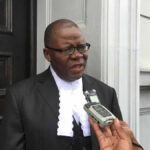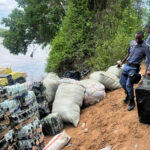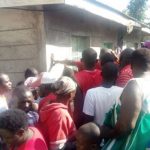The death of Headman Muchibwa-Nyajena, Maduveko Manyise (45), in a bus accident has cast a pall of sadness over Masvingo Province. Manyise, installed as headman only last March, perished on Sunday when an InterAfrica bus he was travelling in collided with a stationary truck near Dabuka along the Harare-Bulawayo Highway. He was one of seven passengers who died at the scene.
Manyise’s brother, Dr Maseko Manyise, confirmed the death in a telephone interview with The Mirror. He paid tribute to his brother: “We are saddened by the untimely death. He was a minister in the church, an exceptional communicator and was remarkable in the way he solved problems. He was a sociable man and he impacted the lives of people through his sound advice and inspiration.”
Manyise, a radiographer by profession, worked at Fort Street Medical and Dental Surgery in Bulawayo. His educational journey began at Chiwawa Primary School in Nyajena (Grades 1-3, 1985-1987), continuing at Nyajena Primary School until Grade 7. He then attended Nyabata High School for his Ordinary Level education.
His life took a different turn when he joined the Army in 1998, serving in the DRC war from 1999-2000. It was during this time that he trained as a radiographer. He later obtained a Theology Degree in 2022 from the National University of Science and Technology. He retired from the Army in 2021 and joined the private sector.
Manyise, a member of the Mutendi-Zion Christian Church (ZCC), is survived by his wife, Rejoice Chihanga, and two children, a 20-year-old daughter and a 15-year-old son. He was buried in Mavhungwe, under Chief Nyajena, on Thursday.
The accident scene was marred by reports of widespread looting, with opportunistic individuals stealing from the damaged vehicles. The ZRP strongly condemned this behaviour, issuing a statement reminding the public that looting from accident scenes is a serious crime. The police are urging communities to cooperate with authorities in assisting victims and facilitating investigations.
The ZRP’s warning underscores the need for heightened awareness and stricter enforcement of laws against highway looting. This type of opportunistic crime not only adds to the trauma of those affected by accidents but also poses a significant risk to public safety. The presence of looters at accident scenes can hinder rescue efforts and create further danger for emergency responders and those involved.
The sudden death of Headman Manyise, so soon after his installation, has inevitably led to speculation. In many African communities, traditional leadership positions, such as headmanship and chieftainship, are not easily attained. These positions often attract considerable attention, not only for the government salary and benefits they provide, but also for the power and influence they confer. This power can be a source of both admiration and envy, sometimes attracting the attention of those who would seek to harm the leader through witchcraft or other means.
Consequently, many traditional leaders in Zimbabwe and other African countries consult sangomas and spirit mediums for protection, seeking spiritual guidance and safeguarding against potential enemies.
The perceived risks associated with these powerful positions often necessitate such precautions, highlighting the complex interplay between tradition, power, and the potential for conflict in rural communities. The circumstances surrounding Headman Manyise’s death, therefore, warrant a thorough investigation to ascertain the full facts and dispel any lingering suspicions.
Such investigations are usually done at family level in what is called ‘kunobvunzira’ where the deceased’s closed relatives visit one of more sangomas or spirit mediums to ascertain whether their relative died naturally or it was due to foul play. This practice, although it is still common in some rural communities, however, it is strongly castigated by Christians and is percieved to be an evil ceremony that is against Christianity.












